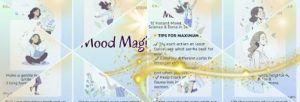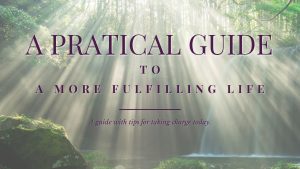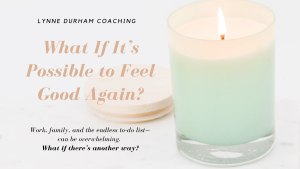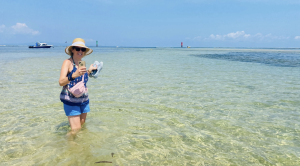Just like eating well and exercising, sleep is a behaviour that is foundational to our physical, mental, and social well-being.
I am joining members of the World Sleep Society, sleep experts, and community health advocates in over 70 countries in organising an activity to promote sleep health. Join me!
Sleep Is Essential For Health
Just like eating well and exercising, sleep is a behaviour that is foundational to our physical, mental, and social well-being.
- Come along and learn how to encourage yourself to a good sleep pattern
- Come along and find out how to put yourself back to sleep if you get woken during the night
- Come along to this workshop and enjoy restful sleep!
Just like eating & exercising well: Sleeping well can become a habit too.
Watch the recording and more in the Better Sleep Toolbox.
There are 2 Key Messages for World Sleep Day 2023
Key Message 1: Healthy sleep is about more than simple duration.
Three elements of good quality sleep are:
- Duration: The length of sleep should be sufficient for the sleeper to be rested and alert the following day.
- Continuity: Sleep periods should be seamless without fragmentation.
- Depth: Sleep should be deep enough to be restorative.
Key Message 2: Sleep is a pillar of human health.
The World Health Organization defines “health” as “a state of complete physical, mental and social well-being and not merely the absence of disease or infirmity.” Decades of research have demonstrated the significance of sleep for physical, mental, and social well-being.
Sleep is essential to health. It is a critical pillar of health, like nutrition and physical activity [1, 2].
- Sleep helps support memory and learning [3].
- Sleep helps clear waste from the brain and promotes brain health [4].
- Sleep supports brain health, and brain health supports sleep [5].
- Sleep supports immune health, and immune health supports sleep [6].
- Sleep helps the immune system to clear bacteria and viruses [6].
- Sleep helps to recycle old cells and maintain our bodies and energy levels [7].
- Sleep health is unevenly distributed across populations and is an important target for improving health equity [2].
Poor sleep health can have multiple significant impacts on human health.
- Poor sleep has been linked to obesity [8], diabetes [9], coronary artery disease, and cardiovascular mortality [10].
- Poor sleep can lower immune response, creating greater susceptibility to infections that reduce sleep quality [4].
- Certain sleep disorders like obstructive sleep apnea and rapid eye movement sleep behaviour disorder are associated with cognitive impairment [11], dementia [12], risk of seizures [13], and increased risk of stroke [14].
- Poor sleep can result in reduced reaction times, impaired judgment, and cognitive impairment, similar in effect to alcohol intoxication [15].
- Drowsiness can impair safe driving even if the driver does not fall asleep [16].
The European Academy of Neurology and the World Health Organization have recognized the importance of sleep to brain health. In 2022, the American Heart Association added sleep to its list of eight essential factors for cardiovascular health.
I have been presenting on behalf of World Sleep Day since 2019
The History of World Sleep Day
The first World Sleep Day was held on March 14, 2008, under the slogan “Sleep Well, Live Fully Awake.” The annual awareness day is held the Friday before Spring Vernal Equinox.
Previous Slogans
- “Sleep Well, Live Fully Awake” – March 14, 2008
- “Drive Alert, Arrive Safe” – March 20, 2009
- “Sleep Well, Stay Healthy” – March 19, 2010
- “Sleep Well, Grow Healthy” – March 18, 2011
- “Breathe Easily, Sleep Well” – March 16, 2012
- “Good Sleep, Healthy Aging” – March 15, 2013
- “Restful Sleep, Easy Breathing, Healthy Body” – March 14, 2014
- “When Sleep is Sound, Health and Happiness Abound” – March 13, 2015
- “Good Sleep is a Reachable Dream” – March 18, 2016
- “Sleep Soundly, Nurture Life” – March 17, 2017
- “Join the Sleep World, Preserve Your Rhythms to Enjoy Life” – March 16, 2018
- “Healthy Sleep, Healthy Aging”– March 15, 2019
- “Better Sleep, Better Life, Better Planet”– March 13, 2020
- “Regular Sleep, Healthy Future”– March 19, 2021
- “Healthy Sleep, Sound Mind, Happy World” – March 18, 2022
References
[1] Cassidy S, Chau JY, Catt M, et al. Cross-sectional study of diet, physical activity, television viewing and sleep duration in 233,110 adults from the UK Biobank; the behavioural phenotype of cardiovascular disease and type 2 diabetes. BMJ Open 2016; 6: e010038
[2] Hale L, Troxel W, Buysse DJ. Sleep Health: An Opportunity for Public Health to Address Health Equity. Annu Rev Public Health. 2020;41:81-99. doi:10.1146/annurev-publhealth-040119-094412
[3] Reyes-Resina I, Samer S, Kreutz MR, et al. Molecular Mechanisms of Memory Consolidation That Operate During Sleep. Front Mol Neurosci 2021; 14: 767384. 2021/12/07. DOI: 10.3389/fnmol.2021.767384
[4] Nedergaard M and Goldman SA. Glymphatic failure as a final common pathway to dementia. Science 2020; 370: 50-56. 2020/10/03. DOI: 10.1126/science.abb8739
[5] Ju YE, Lucey BP and Holtzman DM. Sleep and Alzheimer disease pathology–a bidirectional relationship. Nat Rev Neurol 2014; 10: 115-119. 2013/12/25. DOI: 10.1038/nrneurol.2013.269
[6] Haspel JA, Anafi R, Brown MK, et al. Perfect timing: circadian rhythms, sleep, and immunity – an NIH workshop summary. JCI Insight 2020; 5 2020/01/17. DOI: 10.1172/jci.insight.131487
[7] Min S, Masanovic B, Bu T, et al. The Association Between Regular Physical Exercise, Sleep Patterns, Fasting, and Autophagy for Healthy Longevity and Well-Being: A Narrative Review. Front Psychol 2021; 12: 803421. 2021/12/21. DOI: 10.3389/fpsyg.2021.803421
[8] Covassin N, Singh P and Somers VK. Keeping Up With the Clock: Circadian Disruption and Obesity Risk. Hypertension 2016; 68: 1081-1090. 2016/09/14. DOI: 10.1161/HYPERTENSIONAHA.116.06588
[9] Itani O, Jike M, Watanabe N, et al. Short sleep duration and health outcomes: a systematic review, meta-analysis, and meta-regression. Sleep Med 2017; 32: 246-256. 2016/10/17. DOI: 10.1016/j.sleep.2016.08.006
[10] Covassin N and Singh P. Sleep Duration and Cardiovascular Disease Risk: Epidemiologic and Experimental Evidence. Sleep Med Clin 2016; 11: 81-89. 2016/03/15. DOI: 10.1016/j.jsmc.2015.10.007
[11] Lim AS, Kowgier M, Yu L, et al. Sleep Fragmentation and the Risk of Incident Alzheimer’s Disease and Cognitive Decline in Older Persons. Sleep 2013; 36: 1027-1032. 2013/07/03. DOI: 10.5665/sleep.2802
[12] Wennberg AMV, Wu MN, Rosenberg PB, et al. Sleep Disturbance, Cognitive Decline, and Dementia: A Review. Semin Neurol 2017; 37: 395-406. 2017/08/25. DOI: 10.1055/s-0037-1604351
[13] Bonilla-Jaime H, Zeleke H, Rojas A, et al. Sleep Disruption Worsens Seizures: Neuroinflammation as a Potential Mechanistic Link. Int J Mol Sci 2021; 22 2021/11/28. DOI: 10.3390/ijms222212531
[14] Koo DL, Nam H, Thomas RJ, et al. Sleep Disturbances as a Risk Factor for Stroke. J Stroke 2018; 20: 12-32. 2018/02/07. DOI: 10.5853/jos.2017.02887
[15] Williamson AM and Feyer AM. Moderate sleep deprivation produces impairments in cognitive and motor performance equivalent to legally prescribed levels of alcohol intoxication. Occup Environ Med 2000; 57: 649-655. 2000/09/13. DOI: 10.1136/oem.57.10.649
[16] American Academy of Sleep Medicine Board of Directors, Watson NF, Morgenthaler T, et al. Confronting Drowsy Driving: The American Academy of Sleep Medicine Perspective. J Clin Sleep Med. 2015;11(11):1335-1336. Published 2015 Nov 15. doi:10.5664/jcsm.5200
About World Sleep Society
World Sleep Society is a nonprofit organization based in the United States with a global membership representing over 80 countries. The mission of the World Sleep Society is to advance sleep health worldwide, particularly in places underserved by sleep medicine. World Sleep Society organizes a biennial international research conference for professionals, multiple professional education programs, and public awareness programs like World Sleep Day and Healthier Sleep magazine. Follow World Sleep Society at worldsleepsociety.org and on Twitter, Facebook, LinkedIn and Instagram.






